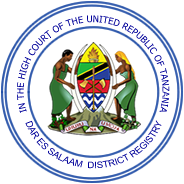IN THE HIGH COURT OF TANZANIA
(DAR ES SALAAM DISTRICT REGISTRY)
AT DAR ES SALAAM
CRIMINAL APPEAL NO. 327 OF 2019
DIRECTOR OF PUBLIC PROSECUTIONS……………………APPELLANT
VERSUS
ALEXANDER JULIUS MABELE ……………………………RESPONDENT.
(Appeal from the decision of the District Court of Mvomero at Mvomero)
(Waziri- Esq, RM.)
Dated 1st August, 2019
in
Criminal Case No. 05 of 2019
--------------
JUDGEMENT
16th April & 11th June 2021
Rwizile, J
The respondent who is at large, was first arraigned before Mvomero District Court. His charges were preferred under section 130(1)(2)(e) and 131(1) of the Penal Code. The sections preferred, create the offence of statutory rape. It was according to the charge sheet that the respondent on 4th September 2018, committed rape to a school girl, (name concealed) while aged 17 years old.
The respondent according to Pw1- the victim, was her English and Kiswahili teacher at Kikeo Secondary School. On 4th September 2018, during the break time, she went to the respondent to ask questions. It seems, things did not go as planned, perhaps for one reason or the other when the break was over she left questions to her teacher and went to attend classes. She was later called by some student to the respondent.
This time the teacher is alleged to close the door of his office and started caressing her allover her body. She was later undressed and placed on the floor as the respondent did the same. He ultimately had sex with her but used a salama condom. She discharged her upon quenching her sexual thirsty. She was warned not to tell anybody about the ordeal. She was scared and could not tell anyone. She further said, because it was her first time to see the man, she sustained injuries leading to bleeding.
The next day as she went to school, she met Pw3 the headmaster, who had information from Eusebia, a fellow student and Chilambo the other teacher. When she was interrogated about it, she told him what the same did to her. The matter was ultimately reported to the police station. The respondent was therefore charged of the offence. The trial court, heard the evidence and found that the case was not proved to the required standard. The respondent was acquitted.
The appellant being aggrieved filed this appeal advancing one ground;
That the trial magistrate failed to evaluate the entire evidence on record and held that the prosecution has failed to prove the case beyond reasonable doubt.
The respondent, upon acquitted could not easily be traced. Even after publication in the Habari Leo newspaper dated 24th, 26th and 28th August 2020, he could not appear to defend his case. It was therefore heard exparte.
Mr. Kisima, learned State Attorney appeared for the appellant. He argued that the Victim-Pw1 gave clear evidence that the respondent was her teacher. He taught her English and Kiswahili. She therefore new him well, it was stated. Further, he argued that the same narrated the whole incidence and the way it was done. It was submitted, according to the evidence rape was done in the office of the teacher.
It was stated further that her evidence proved the charge beyond reasonable doubt. But still, the prosecution went further to call other evidence in corroboration. It was by Pw2, who met her immediately after the incidence. According to Mr. Kisima, even without the PF-3 which was done after 25 days, still, the defect in the evidence could not be the basis of the acquittal. He referred me to the case of Yuda John vs R, Criminal Appeal No. 38 of 2007 (CA) unreported at Page 13.
In conclusion, the learned Attorney was of the view that section 127(7) of the Evidence Act, and the case of Tumaini Mutayoba v R, Criminal Appeal No. 2017 of 2012 as referred in the case of Yuda (supra), be referred to.
Before going to the merits of this appeal, I find important to go through the evidence of the prosecution albeit brief.
Pw2 is the mother of the victim. She told this court that on 4th September 2018, she was told by Pw1 that she was raped by her teacher. She went with her to school on the next day. She met the head of the school and told him about the events that happened to her daughter. She said, she was told that, he too has heard about the rumor. She was therefore told that he will work on the matter by reporting to the police.
Pw3, who is the teacher at the same school and was by then acting headmaster, was informed on 4th September 2018, by Chilambo another teacher, that one Eusebia a fellow student to the victim reported, to him that as Pw1 went to the respondent’s office, she did not come back. When a follow-up was made, the teacher’s office door was closed and no people could be seen. His initiative was to call Pw1 who admitted that she was raped by the respondent. That done, he reported to the headmaster and could not call a meeting with teachers because the respondent did not come to school on that day.
Pw4 is the clinical officer at the Mgeta Dispensary, he testified that on 29th September 2018, made an examination on Pw1 and found that she had bruises in and out her vagina.
He was of the view that the same was penetrated by a blunt object. He tendered her PF-3 as an exhibit. It was admitted as P2.
Pw5 is the investigator of the case as he was assigned. He said, he visited the crime scene and drew a sketch of the crime scene. He said, it was on 4th September 2018. He interrogated the victim who said was raped by the respondent.
From his defence, the respondent denied involvement. He told the trial court that, the case was concocted by teachers because of his position. He was a treasurer and the store keeper. It was his evidence that the offence was not committed.
After going through the evidence, it is as a matter of principle to agree with learned State attorney that the evidence of the victim of a sexual offence may be in itself used to convict. This is indeed the position of the law under section 127(7) of the Evidence Act. But in order for the evidence of the victim to be alone used to convict, it must be first believed by the court.
From the evidence, it should be noted that Pw1 told the trial court that she was raped in the teacher’s officer in the evening. Pw2, her mother said, she approached the headmaster who said he will act on the information he had. In all, it was said, that Pw2 was told by Pw1 as well as Pw3. It was clear that Pw1, since Pw4 so found and there was no reason not to believe his evidence.
The trial court did not believe the evidence of the victim and other prosecution witnesses. Actually, the trial court was of the view that the exh, P2 was obtain over two weeks following the crime for no apparent reason.
I agree with the trial court that a doubt is raised as to why she was taken for examination after a lapse of over two weeks. But according to Pw2, upon reporting the incidence to the teacher, she was told that the police will be informed about and action taken. Exhibit P2 shows, Pw1 was found with bruises in and out of her vagina. In the opinion of the Pw4, she was penetrated by a blunt object.
Pw1 was of the evidence that she met the man for the first time. Perhaps that is why it may have taken too long for wounds to heal. There is evidence therefore Pw1 was raped as shown before. Proof of rape is when there is penetration and in this there is no need of consent. Her evidence was clear that the respondent was in his office, it was in evening, he closed the door, caressed her all over body, undressed and took salama condom and had sex. She further said, when he started having sex, she did not know if the condom was used or not because she had her face covered.
The defence of the respondent was that, because of jealous as to his position as the treasurer and a store keeper, this case was framed-up. He did not say if the same extends to the victim or Pw4 who examined Pw1. It is I think, clear that evidence of witnesses, should be free from contradictions. In this case, I find there were contradictions such as whether Pw1 reported to her mother or if Pw2 met Pw3 and the reason why it took too long to take her for medical examination. But all in all, I find that the same does not go to the root of the evidence of Pw1. I agree with the learned state Attorney that evidence was enough to prove the case. The acquittal in my view was not justified. I set it aside, and substitute for it conviction and sentence the respondent in absentia to an imprisonment term of 30 years.
AK. Rwizile
Judge
11.06.2021


3
